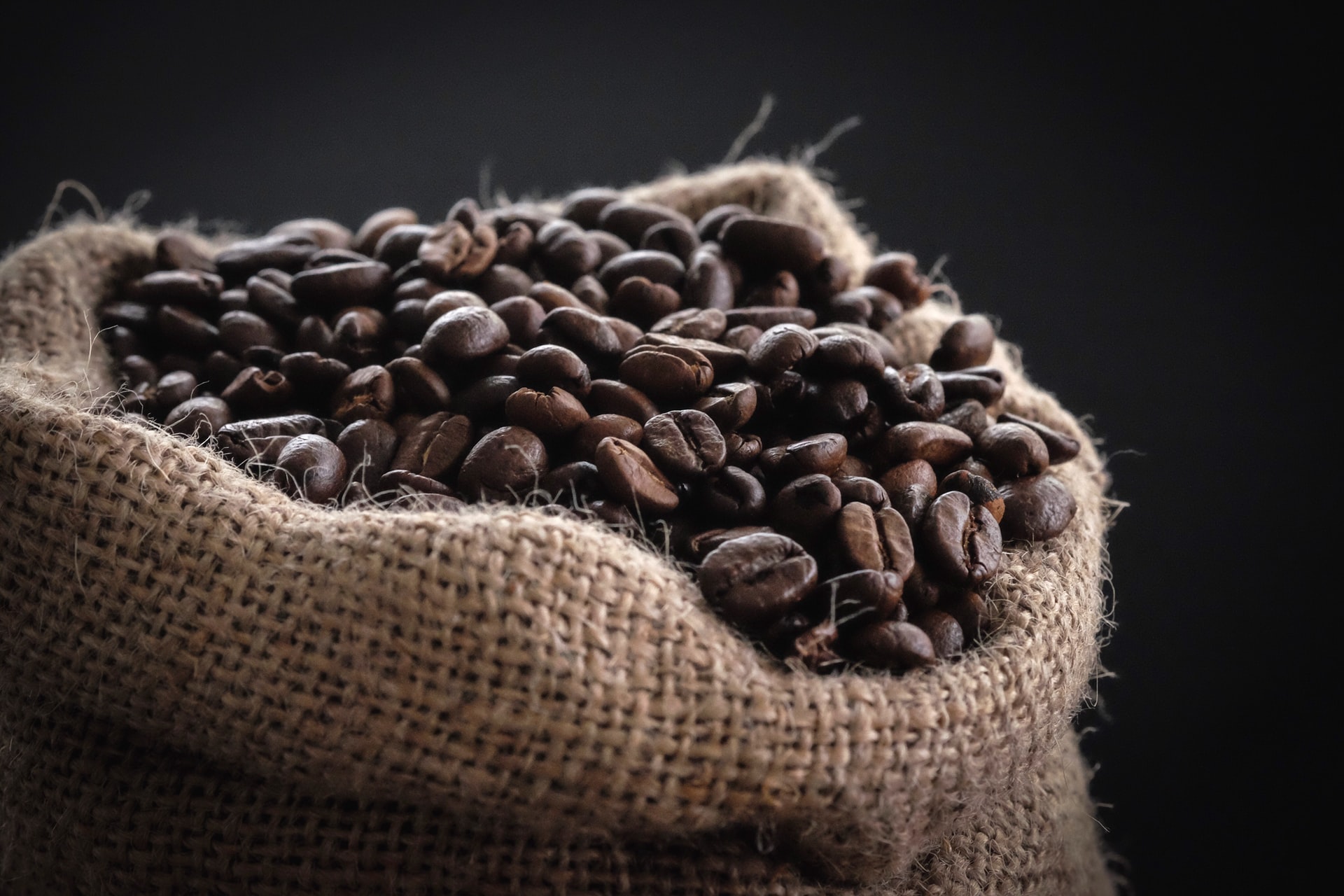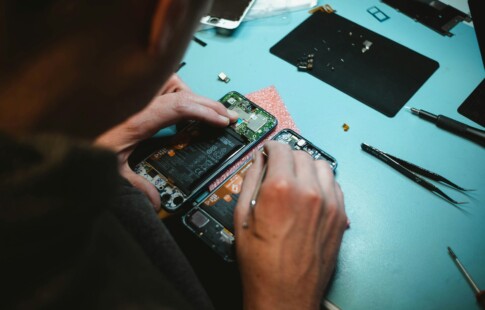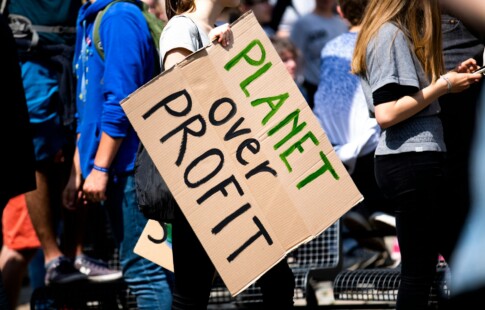
The Best Sustainable Coffee Options
We are reader-supported. When you buy through links on our site, we may earn affiliate commission.
Most people start their day with a hot cup of coffee. It’s an extra boost of energy that makes the mornings more manageable, but it isn’t always compatible with eco-friendly lifestyles. Read on to learn about the best sustainable coffee options and why the coffee in your pantry may secretly expand your carbon footprint.
Is Coffee a Sustainable Product?
Coffee is one of the world’s most widely produced and shipped products. It’s in homes, restaurants, businesses and nearly any property where people spend time. Experts at the U.S. Department of Agriculture (USDA) estimate that in 2020, coffee production sold 175.5 billion 70-kilogram (kg) bags to global consumers.
Before coffee beans can reach your kitchen, they must grow in a field. You might guess that water is essential to producing coffee beans, but it’s even more critical for coffee than other plant species.
The average bean variety needs 140 liters of water to produce a single cup of coffee. Multiply that by nearly 200 billion bags sold in a single year and every consumer becomes part of that significant source of water usage. The water waste becomes even worse when coffee drinkers use water to fill their cups or pour lingering coffee in dirty mugs down the sink.
What Makes a Coffee Brand Sustainable?
Since water is a limited natural resource, sustainable coffee brands will prioritize its value and minimize its use. They may also rotate their coffee fields with other crops. Many traditional coffee brands only plant coffee, which drains the soil of nutrients and limits how much biodiversity can survive in the area.
Eco-friendly brands will also value the communities around where they plant their coffee beans. They’ll hire local employees to boost the economy, avoid building on unavailable lands and reject any business plans that would otherwise hurt or pollute the surrounding environment.
The Best Sustainable Coffee Options
Now that you know more about what makes coffee brands eco-friendly, check out some of the best sustainable coffee options available. They focus on different aspects of sustainability, which may influence which brands align most with your environmental concerns.
1. Ethical Bean
The founders of Ethical Bean planned for their business to prioritize the planet from the very beginning. Their production plants use only 100% renewable natural gas and earned the Fair Trade Certification for their high environmental standards.
Enjoy freshly ground beans or a coffee pod with sausage tofu crumbles, which is one of the vegetarian alternatives that reduce or eliminate production emissions by removing animals from the production process. You’ll have carbon-free breakfasts every morning, even if your coffee comes from a biodegradable pod.
2. Tiny Footprint Coffee
When someone buys from Tiny Footprint Coffee, they’re helping Ecuador’s Mindo cloud forest. The brand only creates four pounds of CO2 during its production and shipment processes. To counteract that pollution, the brand donates a portion of its profits to the reforestation of the Mindo cloud forest. Every newly planted tree becomes another helpful natural resource that removes CO2 from the atmosphere.
Sip on your next mug of Tiny Footprint Coffee while watching the morning news or grab your favorite reusable straw and drink it while driving to work with a happy, eco-friendly conscience.
3. Café Mam
What happens when your coffee pods and bags end up in landfills? They take many years to break down, but you can fix that problem by buying from Café Mam. The brand packages all of its coffee in biodegradable, shelf-stable and compostable paper bags that are durable for transportation.
The revolutionary take on coffee distribution is one of the reasons the brand received a Fair Trade Certification. Another reason is their upfront auditing that guarantees sustainability in every part of their growing, production and transportation processing.
4. Grounds for Change
Anyone who prefers organic coffee should try a blend from Grounds for Change. The brand makes organic coffee by growing fair-trade beans and avoiding industry-standard agricultural chemicals that would promote coffee bean growth in exchange for polluting local waterways and affecting the health of residents in surrounding towns. Grounds for Change coffee is better for the planet from the moment each plant begins forming roots, so you can feel confident while it’s brewing in your kitchen.
5. Larry’s Coffee
Many sustainably-minded people enjoy Larry’s Coffee for its many flavors and eco-friendly production. The brand uses solar panels to heat water at its production plants, captures rainwater to reduce its water usage and operates every vehicle on plant-based biodiesel with with one of the limited bio pumps on the East Coast. The brand’s packaging is also recyclable, including the coffee pods that are popular with so many consumers.
6. Conscious Coffees
People may think that going green is a recent trend, but Conscious Coffees began its sustainable efforts in the late 1990s. The founders purchase their beans from the same producer to provide year-round economic growth in the farming regions as part of its dedication to supporting smaller cooperatives. With every purchase, you’ll enjoy organic coffee beans in compostable bags from communities that care about the environment.
7. Higher Ground Coffee
The Higher Ground Roasters brand has a Fair Trade Certification for its sustainable business model and wind-powered plants. The shade-grown fields thrive under a canopy of trees, conserving water around the root systems and protecting local biodiversity. Consumers can also read about each of the seven Higher Ground Coffee farms to better understand precisely how the company created your coffee from each specific location.
8. Wonderstate Coffee
The Wonderstate Coffee company has a 100% solar-powered business because it invested in solar farms in addition to agricultural farms. The founders also pay the highest published minimum price to farmers and guarantee that number as a baseline, which is higher than the baseline required by the Fair Trade Association. Five percent of the company’s annual profits also to community-based organizations around their farms that provide women’s education, economic opportunities and ongoing land protection.
Try New Sustainable Coffee Brews
When it’s time to find the best sustainable coffee option for your morning routine, there are many brands to consider. Think about what you want your purchases to support and how your coffee should help the environment to pick a blend that matches your sustainable values.
Share on
Like what you read? Join other Environment.co readers!
Get the latest updates on our planet by subscribing to the Environment.co newsletter!
About the author

Jane Marsh
Starting from an early age, Jane Marsh loved all animals and became a budding environmentalist. Now, Jane works as the Editor-in-Chief of Environment.co where she covers topics related to climate policy, renewable energy, the food industry, and more.





